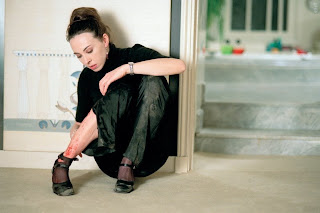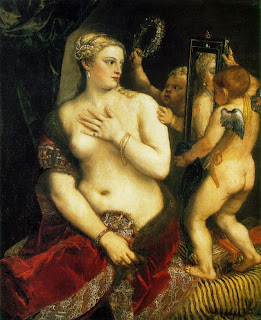Here is something you probably shouldn’t try: defending that movie Irreversible. Yeah, you know – the rapey one. Unfortunately, nobody warned the AV Club, and their resulting examination is about as incoherent as you might expect.
As you can imagine, I got a wee bit testy after reading this piece and the resulting conversation. I will spare you the spiel about gendered violence, and appropriation, and about how artists laying claim to experiences they are protected from in order to show how edgy or deep they are is fucking Privilegetard 101, and about how said artists usually manage to demonstrate that they know nothing about the topic at hand in their Great Masterpieces. I want to blow past all this, and bring you to my only positive thought inspired by this article, which is as follows:
 For those who have not seen it, here is a brief rundown: it centers on a woman, Esther, who rips her leg open on a shard of metal at a party. She doesn’t feel the injury for some time. When she finally does notice it, it fascinates her; she becomes obsessed with cutting herself up, and she studies, plays with, or eats the parts of herself that she’s cut away. Her body is not her any more: it acts without her permission, and she can’t feel its pain as her own. Her relationships fall apart. (In one scene, she explains her compulsion to her boyfriend, and he decides to fuck her sane, saying, “can you feel this?” She says no.) She finally takes her body away to a motel room, and carves and eats it in front of a full-length mirror, in a scene that can’t help but be sexual – a protracted and bloody jouissance.
For those who have not seen it, here is a brief rundown: it centers on a woman, Esther, who rips her leg open on a shard of metal at a party. She doesn’t feel the injury for some time. When she finally does notice it, it fascinates her; she becomes obsessed with cutting herself up, and she studies, plays with, or eats the parts of herself that she’s cut away. Her body is not her any more: it acts without her permission, and she can’t feel its pain as her own. Her relationships fall apart. (In one scene, she explains her compulsion to her boyfriend, and he decides to fuck her sane, saying, “can you feel this?” She says no.) She finally takes her body away to a motel room, and carves and eats it in front of a full-length mirror, in a scene that can’t help but be sexual – a protracted and bloody jouissance.
It should be clear by now that this is a disturbing movie. I saw it with a man who loves gory horror movies, and it upset him to the point of nausea and tears. I think that In My Skin’s capacity to sicken and disturb is one of its virtues; shock can be a valuable tool, as long as it makes you think about why you’re shocked in the first place.
In Powers of Horror, Julia Kristeva sets forth her theory of abjection. The abject which is anything that violates the binary of me/not me, or subject/object: shit, blood, filth, injury, death, madness, and our mothers, because we were part of them once and are not any more, among other things. We feel a special sort of terror and revulsion when we encounter the abject, because it threatens the foundation of our identities. We create rules, rituals and taboos in order to deal with that terror; we separate the “clean” from the “unclean” in order to experience ourselves as stable and fixed subjects.
It could be said that every woman lives in a state of abjection. Think about how we bleed and grow other bodies within our own bodies, or all of the products and procedures designed to ensure that women, and especially women’s genitals, remain “clean,” or the persistent identification of women with madness, both in art and mythology and in more current ideas of “hysteria” or period-related “craziness” or “irrational” behavior. Fear of the mother becomes fear of all women, because all women are perceived as mothers or potential mothers themselves. There is a reason that we eroticize women who look as if they’ve never reproduced.
 Moreover, it can be said that every woman experiences her own body as abject. Say what you like about the theory of the male gaze, but the fact is that women’s bodies are presented as Other and object in most art and discourse, simply because the people who have produced art and controlled discourse for most of recorded history have not inhabited female bodies. Women internalize this, and therefore live in the uncomfortable position of perceiving our bodies as objects while also having our subjectivity inextricably bound to them. Lots of female trouble arises from this predicament – anorexia, inorgasmia, many complex and varied forms of shame and self-loathing – and so does In My Skin.
Moreover, it can be said that every woman experiences her own body as abject. Say what you like about the theory of the male gaze, but the fact is that women’s bodies are presented as Other and object in most art and discourse, simply because the people who have produced art and controlled discourse for most of recorded history have not inhabited female bodies. Women internalize this, and therefore live in the uncomfortable position of perceiving our bodies as objects while also having our subjectivity inextricably bound to them. Lots of female trouble arises from this predicament – anorexia, inorgasmia, many complex and varied forms of shame and self-loathing – and so does In My Skin.
Someone on the Internet called In My Skin the female version of American Psycho. While I think that’s limiting, I do agree with it, in a sense: if American Psycho is about the masculine prerogative of establishing everyone and everything as Object, with oneself as the supreme Subject, and about taking that premise to its logical extreme, then In My Skin is about the female experience of being embodied as both subject and object, and about the logical extremes of that position. The question is posed, not only by the movie, but by the way in which it was made: Marina de Van, who wrote and directed the movie, also plays Esther, and I’m told that she actually did cut herself at times to save money on special effects. I don’t know if that’s true – if it is, it raises a host of other questions – but I am fascinated by how she plays with being the woman who creates the image and the woman who comprises the image, the watcher and the watched.
In My Skin isn’t about self-mutilation as we understand it. It’s never clinical or therapeutic (in the vulgar sense) in how it approaches Esther’s behavior. It’s got more in common with certain Cronenberg movies than it does with Girl, Interrupted. (While we are on the subjects of abjection and gender and body horror in film, here is a great scene from a so-so movie: Jude Law, in Cronenberg’s eXistenZ, explaining to Jennifer Jason Leigh that, “I just have this phobia of being… penetrated.” Jennifer tries to convince him that it’s great, it’s fun, everyone does it, he should let her stick it in. He gets very prissy as he explains that just because everyone does it, there’s no reason he has to do it, too. He’s trying to keep himself clean! This scene, in context, has absolutely nothing to do with sex, and I love it very much.) In fact, Esther’s boyfriend stands in for the concerned audience, and functions as a way to dismantle their preconceptions: as he tells Esther to think of herself, or think of him, or be for God’s sake a little bit rational, the audience is brought to the uncomfortable realization that he has no clue what’s going on.
Esther doesn’t hate herself or her body; she simply doesn’t identify self with body any more. She’s puzzled by the body, and she wants to figure it out. The AV Club review quotes her as saying, “If I am no longer my body, what am I?” Here is another way to phrase that question: if your body is no longer you, what is it? Meat, project, enemy, lover? When Esther has answered these questions to her satisfaction – or at least taken her investigation as far as it can go – she puts her clothes on and walks away.
*Or, you know, Alien. Forced male pregnancy, ahoy!
One Comment
This post has so much truth.
This is something I thought about a lot while reading The Unbearable Lightness of Being — particularly (as will be no surprise) the “Soul / Body” segments, through it’s a pretty pervasive theme throughout the novel.